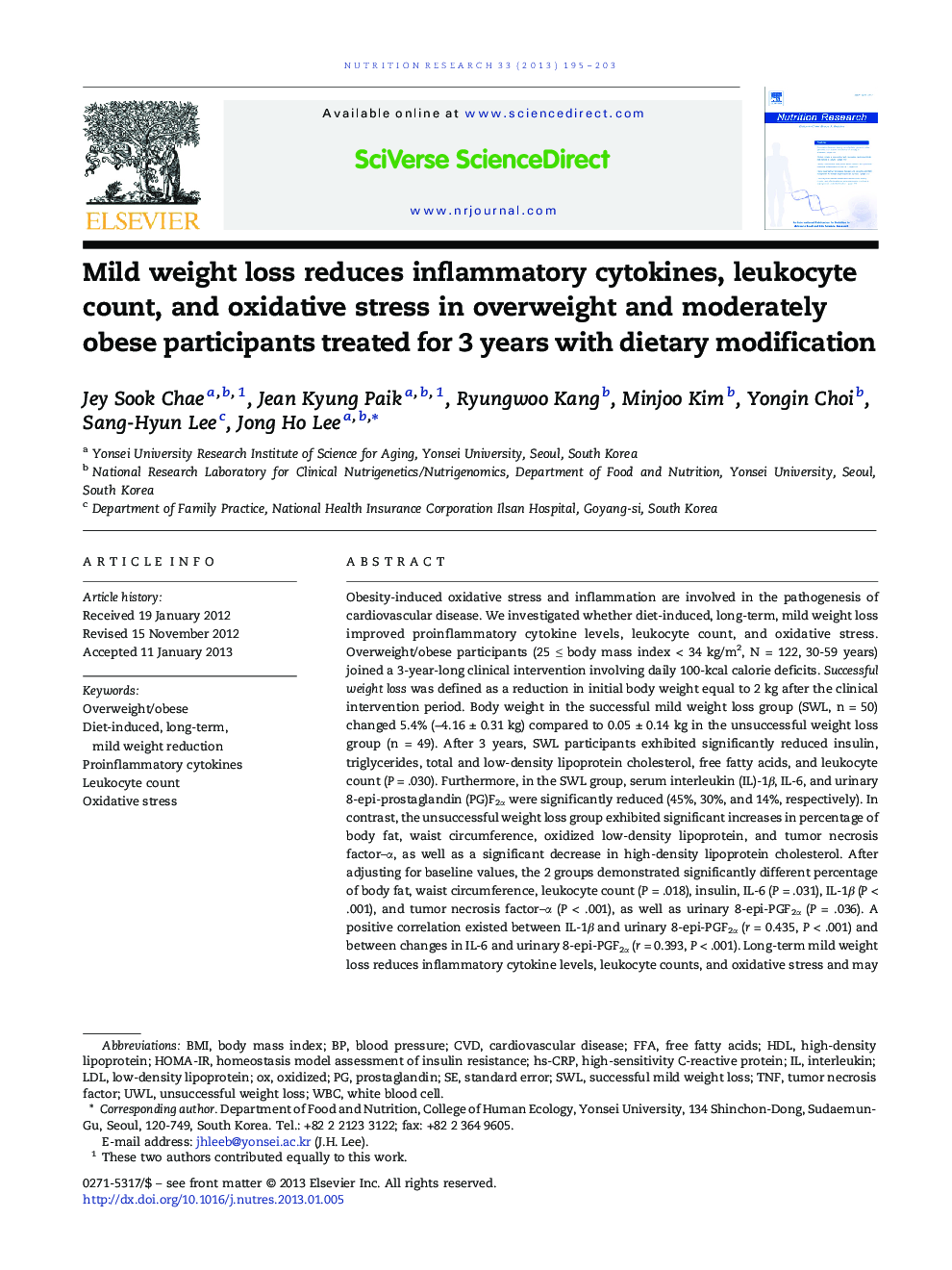| کد مقاله | کد نشریه | سال انتشار | مقاله انگلیسی | نسخه تمام متن |
|---|---|---|---|---|
| 5904560 | 1158012 | 2013 | 9 صفحه PDF | دانلود رایگان |
Obesity-induced oxidative stress and inflammation are involved in the pathogenesis of cardiovascular disease. We investigated whether diet-induced, long-term, mild weight loss improved proinflammatory cytokine levels, leukocyte count, and oxidative stress. Overweight/obese participants (25 ⤠body mass index < 34 kg/m2, N = 122, 30-59 years) joined a 3-year-long clinical intervention involving daily 100-kcal calorie deficits. Successful weight loss was defined as a reduction in initial body weight equal to 2 kg after the clinical intervention period. Body weight in the successful mild weight loss group (SWL, n = 50) changed 5.4% (â4.16 ± 0.31 kg) compared to 0.05 ± 0.14 kg in the unsuccessful weight loss group (n = 49). After 3 years, SWL participants exhibited significantly reduced insulin, triglycerides, total and low-density lipoprotein cholesterol, free fatty acids, and leukocyte count (P = .030). Furthermore, in the SWL group, serum interleukin (IL)-1β, IL-6, and urinary 8-epi-prostaglandin (PG)F2α were significantly reduced (45%, 30%, and 14%, respectively). In contrast, the unsuccessful weight loss group exhibited significant increases in percentage of body fat, waist circumference, oxidized low-density lipoprotein, and tumor necrosis factor-α, as well as a significant decrease in high-density lipoprotein cholesterol. After adjusting for baseline values, the 2 groups demonstrated significantly different percentage of body fat, waist circumference, leukocyte count (P = .018), insulin, IL-6 (P = .031), IL-1β (P < .001), and tumor necrosis factor-α (P < .001), as well as urinary 8-epi-PGF2α (P = .036). A positive correlation existed between IL-1β and urinary 8-epi-PGF2α (r = 0.435, P < .001) and between changes in IL-6 and urinary 8-epi-PGF2α (r = 0.393, P < .001). Long-term mild weight loss reduces inflammatory cytokine levels, leukocyte counts, and oxidative stress and may reverse the elevated oxidative stress induced by inflammatory mediators in the overweight and obese.
Journal: Nutrition Research - Volume 33, Issue 3, March 2013, Pages 195-203
